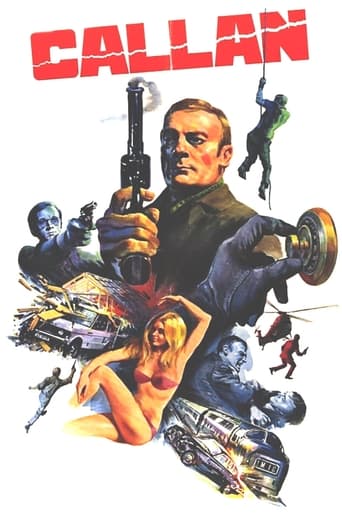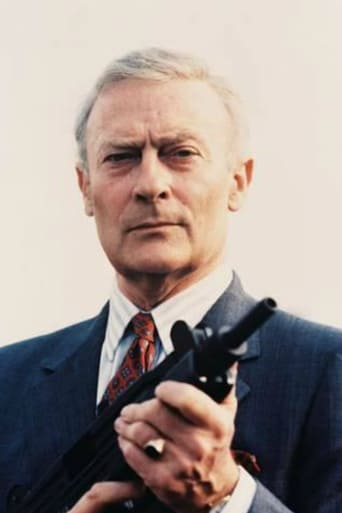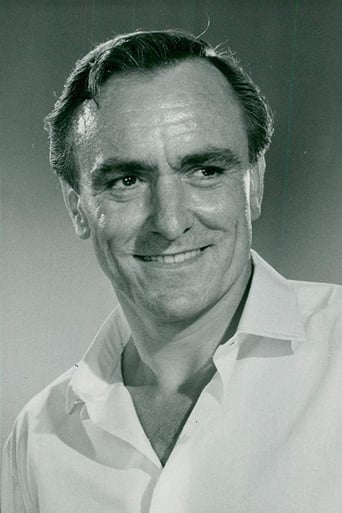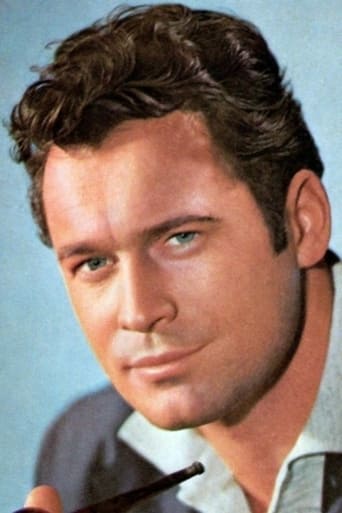

Callan (1974)
David Callan, secret agent, is called back to the service after his retirement, to handle the assassination of a german businessman, but Callan refuses to co-operate until he finds out why this man is marked for death.
Watch Trailer
Cast


Reviews
David Callan and the TV series he appeared in were the brainchild of writer James Mitchell. Both character and series became a successful phenomenon of the late sixties and early seventies and made a star of Edward Woodward. Conceived as a flip-side to Bond, Callan was a reluctant spy – a veteran combatant of Malaya, dishonourably discharged from the army, a career criminal and ex-con. He winds up blackmailed into working for The Section, the sharp end of cold war espionage. A crack-shot with a pistol and a multiple murderer, he gets the dirty jobs. The Section is all about damage-limitation by whatever means necessary and is run by a series of different bureaucrats with the same codename – Charlie Hunter.Callan's only friend, a pathetic and perpetually nervous thief called Lonely (Russell Hunter) is like something straight out of the pages of Dickens. Their interactions are full of dramatic pathos and distorted humanity, defined by Callan's cruel jibes about Lonely's body odour problem and his at times frightening aggression towards him. In response, Lonely reciprocates with awestruck fear and respect for the man who is the only person who actually cares about him. For despite all, Callan does everything he can to protect Lonely because Lonely is in fact the only person in the world who really cares about Callan.Essentially, Callan has a conscience and it bothers him. He questions and rebels against authority, hates his life but has no other options open. He is a working class thug and peerless killer with a sharp brain and a fractured psyche. He should perhaps be seen as a monster, but his inherent humanity and convincingly empathic personality flaws render him completely relatable and sympathetic.The colour episodes (all available and intact) are arguably less visually impactive than the monochrome ones. Of the sixties black and white series, about nine teleplays have been "lost" for all time – the tapes reputedly wiped by some idiot jobsworth at ITV. Those that remain – including the original introductory play "A Magnum For Schneider" – depict a sixties London that definitely isn't all swinging, all dancing. It is bleak, grimy, downbeat and dangerous - full of squalid bed-sits, creeping social paranoia and post-war depression. Callan lives in the shadows and life there is cruel, harsh and often painfully short.This brings us to the 1974 movie version and the penultimate screen appearance of the character. The last time Callan appeared on screen was in the 1981 teleplay "Wet Job" which, despite being penned by Mitchell, was unfortunately a bit lacking and not the most appropriate of swansongs for such a great creation. Still, it was good to see him meet up with Lonely one last time and live to fight another day.The movie is a retread of "A Magnum For Schneider." A disgraced Callan has been kicked out of The Section, working as a book-keeper for a seedy businessman. This is just a set up for some wet work. Hunter has manipulated the situation to put Callan in close proximity with Schneider, a German industrialist based in the offices next door. He is rich, has Nazi connections and funds global terrorism. Callan is to get close to Schneider – through their mutual love of playing war-games – find and retrieve evidence of his activities and kill him. But it's never that simple. Callan has to operate off the books so The Section has plausible deniability, so he's on his own. If he succeeds, Hunter promises to take him back into The Section.It's a solid enough film, but workmanlike rather than inspired. Woodward is, as always, convincingly superb as the conflicted and tortured agent. Russell Hunter gives his usual authentic portrayal of the ultimate dweller on the fringes of society, a pathetic petty crook habitually addicted to a hopeless life of crime. Toby Meres is this time played by a very smooth Peter Egan, the third actor to take on the role, and he's OK but he's not a patch on Anthony Valentine who truly owns it.There are some memorable moments and lines of dialogue. After Callan kills the towering heavy, Arthur (Dave Prowse), with his bare hands, he tells Lonely that he hit him. "You hit Arthur?" Lonely inquires incredulously. Callan replies: "I hit him... and he died of it." It's a terrific little scene, beautifully played, with both actors conveying an entire range of affecting emotions in mere flickering seconds of screen time. At one later point Hunter inquires: "what about Meres?" to receive the laconic and perfectly delivered response from Callan: "I believe he is unconscious, though with Meres it is difficult to tell." The writing is crisp and bone dry.There are sporadic bursts of realistic action, and the film overall has a pleasing, downbeat early seventies vibe. It captures certain elements of the TV series well – the sense of being close to what real Cold War espionage might have been like – but it really would have benefited from re-using the original Jack Trombey "Callan Theme" to add to the atmosphere. The jaunty harmonica and military band motifs here are no replacement for that slow, resonating guitar hook, spartan strings and melancholic horns."Callan" the movie remains a firm personal favourite for me and it's due another viewing once I've worked my way through my recent purchase of "The Monochrome Years" and "The Colour Years" DVD sets of the original series. All TV episodes in existence are available in these collections and represent one of the best purchases I've ever made. The movie remains a respectful and decent enough representation of one of British TV's greatest and most influential creations.
I first encountered this film on USA Cable, in the late 80's. At first, I thought it was another Harry Palmer film (Ipcress File, Funeral In Berlin, Billion Dollar Brain), but with a different actor. I soon realized it wasn't and recognized Edward Woodward from The Equalizer and Breaker Morant. The film is very much in the same vein as Harry Palmer, slower paced, a character who is an agent not by his own choice, meticulous detail, and a more real world approach.Edward Woodward is outstanding as David Callan, an ex-thief and troubleshooter for a secret government department. he specializes in assassination, frame-ups, and other dirty dealings. This is a dark and shabby world inhabited by Callan, and he doesn't like it. He is torn at every turn by the morality of the job he does. He is affected by nightmares of past deeds, prone to alcoholism, and is deeply cynical.Woodward breathes tremendous life into Callan. He is ably assisted by Eric Porter as Hunter, his boss, and Russel Hunter, as the always smelly and put upon Lonely. Hunter (the actor) is the only other carry-over from the TV series. He is a small man who is abused by all.The film greatly expands the TV series (which I was finally able to view recently), something that other TV-based British films rarely did effectively. Callan was stage bound and shot on video. This motion picture allows for greater location shooting and a more vibrant look.Hopefully, the film will see the light of day again in the US, along with the recent DVD releases of the color episodes of the series. It is an excellent piece of work, sure to appeal to fans of Harry Palmer, Jason Bourne, the writings of John Le Carre, or other serious espionage thrillers.
An acceptable expansion of the pilot episode of the celebrated TV spy series,CALLAN benefits from Edward Woodward's memorable characterisation of an unglamourous,seedy and brutish secret agent David Callan,helped and hindered by his even seedier sidekick,smelly petty crook Lonely,superbly played by Russell Hunter.Although not quite as good as the TV series,this film version is still very watchable and efficiently directed by Don Sharp,with a few interesting frisson's added,most notably Callan's ferocious disposal of a gangster's hit-man(played by Dave Prowse,later to become Darth Vader's physical form.As with Star Wars,Prowse's Bristol accent is dubbed over here as well)and the gangster's subsequent use for virtual human experimentation,which Callan observes to his disgust and horror.The series was always interesting for Callan's frequent clashes with his superiors,made more strident because of his working-class background;his colleagues were invariably upper middle-class,public schoolboys,as typified by the vindictive bully Toby Meres,played here by Peter Egan.Egan is adequate in the role but lacks the extra toughness,wit and humour provided by Anthony Valentine in the TV series(Peter Bowles played Meres in the pilot),and his boss 'Hunter',played in this film version by Eric Porter; the best 'Hunter' of all in the TV series was probably William Squire.Many UK TV shows had film versions produced in the 1970's,mostly sitcoms like ON THE BUSES,LOVE THY NEIGHBOUR,MAN ABOUT THE HOUSE,etc. These and others were mostly dismal but CALLAN works far better despite having to add more footage from the original TV pilot,and works as a taut,terse and respectable film version of an excellent TV original.RATING:6 and a half out of 10.
This is a tight, intelligent thriller closely based on the fine novel Red File For Callan, from which the great 1960s-1970s Thames TV series developed. David Callan is a solitary, mentally unstable killer, who is given one last chance to return to "The Section", a shadowy British government security department. Callan hates to kill, but is qualified for little else, and has been forced by his old masters into a dull, mundane office job with a harassing boss. His test is to murder someone - a man whom it turns out he knows, an apparently harmless businessman with whom he shares an interest in military history and battle games. The film boasts a first-class performance from Edward Woodward as Callan, reprising his TV role with confidence. Russell Hunter is also extremely good as Lonely, a smelly petty crook who Callan employs to get him a gun. Sadly the film was made with little style, and the military band score is disappointingly out of kilter with Jack Trombey's fine, moody Callan TV theme.The Callan character was an icon in British television history, and was extremely popular with viewers. This story got its first outing as A Magnum for Schneider (the book's original title) in a 50 minute slot on Armchair Theatre, a famous British TV drama anthology. (This unofficial pilot can now be seen on a very good DVD compilation of what early episodes are still unwiped, called "Callan: The Monochrome Years" (Network DVD, 2010).) Callan was seen, like The Ipcress File, as an antidote to the invulnerable 007. Why there were no other Callan films made, since the creator James Mitchell wrote several filmable novels about the character, is a mystery.Callan boasts one technical distinction: according to the Guinness Book of Movie Facts and Feats, this was the first film to be released with a Dolby encoded mono soundtrack. (A Clockwork Orange used Dolby noise reduction in its making some years before but used a conventional soundtrack on its release prints.) When I saw Callan on its release at a local cinema, I remember thinking the sound was uncommonly clear and the dialogue for once actually audible.




